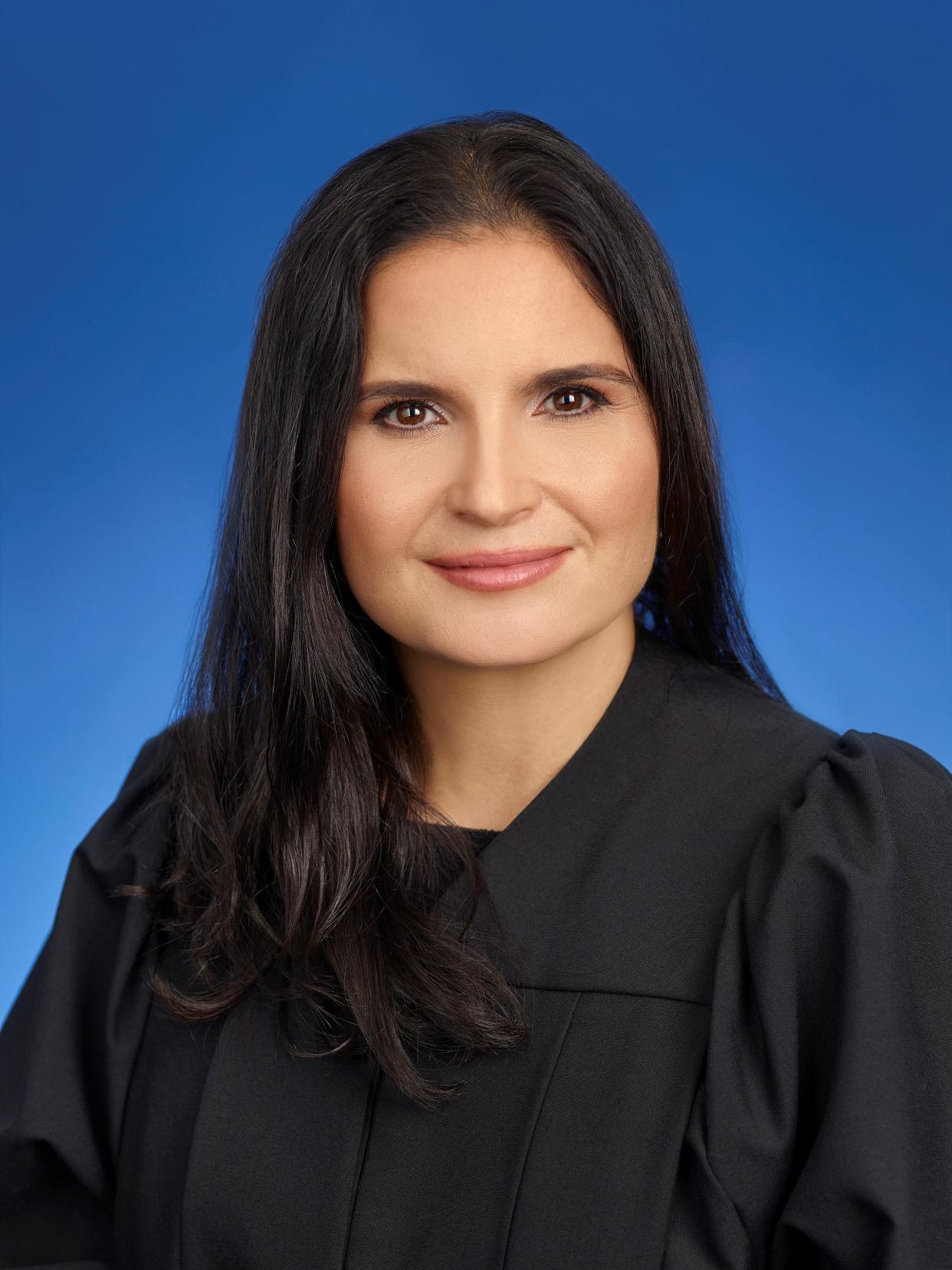Who is Aileen Cannon, Trump-appointed judge overseeing the classified documents case?
WEST PALM BEACH — U.S. District Judge Aileen Cannon catapulted into the national spotlight last year when she was assigned to oversee the classified documents case against former President Donald Trump.
Cannon’s assignment sparked immediate controversy, which has only heightened in the months that followed. The judge has broad authority over many aspects of the classified documents case, including how quickly it goes to trial and what evidence jurors will get to see when it does.
She's already made a handful of key decisions, some of which have riled legal experts and perplexed the special counsel prosecuting Trump.
Here are five things to know about Cannon.
1. Before becoming a judge, Aileen Cannon was a federal prosecutor.
After graduating from University of Michigan's law school in 2007, Cannon worked for a year as a clerk in Iowa for federal appellate judge Steven Colloton — one of 25 judges Trump said he would consider for the U.S. Supreme Court. Cannon left the clerkship to join a Washington-based law firm that defends people and companies from accusations of regulatory or security violations.
After three years at the firm, she joined the U.S. Attorney’s Office in Fort Pierce. Initially hired in the major crimes division, she participated in four jury trials and successfully prosecuted another roughly 35 people on charges including fraud, immigration, firearms and drug offenses. She later moved to the office's appellate section before applying for the federal bench.
She'd been a lawyer for 12 years by then, just crossing the threshold needed to be considered "qualified" by the American Bar Association. Trump appointed her to the bench in 2020 after Florida Republican U.S. Sens. Marco Rubio and Rick Scott recommended her.

2. Cannon is a member of the Federalist Society.
Like many of Trump’s judicial picks, Cannon is a member of the Federalist Society. She joined the national conservative group in 2005 when she was in law school. The Federalist Society was formed in 1982 with the goal of “checking federal power, protecting individual liberty and interpreting the Constitution according to its original meaning."
When asked during her confirmation process about why she joined the group, Cannon wrote that she "enjoyed the diversity of legal viewpoints discussed at Federalist Society meetings and events."
“I also found interesting the organization’s discussions about the constitutional separation of powers, the rule of law, and the limited role of the judiciary to say what the law is — not to make the law,” she added.
3. Cannon was randomly assigned to Trump's classified documents case.
A computerized system chose Cannon from among five eligible judges in the federal court district. She is the only U.S. district judge assigned to the federal courthouse in Fort Pierce, the northernmost outpost of the South Florida district that includes West Palm Beach, Fort Lauderdale and Miami.
The chief clerk of the court said that about half of Cannon's cases come from the West Palm Beach division, where Mar-a-Lago is. Cannon has not indicated that she intends to move the trial to one of the larger federal courthouses in Fort Lauderdale or Miami.
4. Cannon ruled in the Pelosi and Ocasio-Cortez threats case.
Trump's isn't the first high-profile litigation Cannon has overseen. In April 2022, she sentenced a Palm Beach County man to 18 months in prison for making death threats against House Speaker Nancy Pelosi, D-California, and U.S. Rep. Alexandria Ocasio-Cortez, D-New York.
A federal prosecutor called the threats vulgar, sexist and racist and urged Cannon to sentence Paul Hoeffer to nearly 3 ½ years in prison. Hoeffer's defense attorney said his remorse and ongoing battle with cancer warranted the judge's leniency.
Ultimately, Cannon sided with Hoeffer. The 18-month sentence she imposed is more than a year less than the minimum sentence he faced under federal sentencing guidelines.
5. A federal appeals court has already overturned Cannon twice.
Cannon garnered national attention for her involvement in the classified documents case before she was randomly assigned to oversee it. After the FBI seized records from Mar-a-Lago in August 2022, Cannon granted Trump's request to have a retired judge, called a special master, review the documents for potential personal records. Her decision temporarily prevented investigators from scrutinizing them.
An appeals court initially overturned part of Cannon’s order and allowed authorities to continue investigating the documents during the special master's review. Then, the appeals court overturned Cannon’s order in its entirety.
"The law is clear," the three-judge panel of the 11th U.S. Circuit ruled. "We cannot write a rule that allows any subject of a search warrant to block government investigations after the execution of the warrant. Nor can we write a rule that allows only former presidents to do so."
Hannah Phillips is a journalist covering public safety and criminal justice at The Palm Beach Post. You can reach her at hphillips@pbpost.com.
This article originally appeared on Palm Beach Post: Aileen Cannon: 5 things to know about Trump-appointed judge in Mar-a-Lago case
